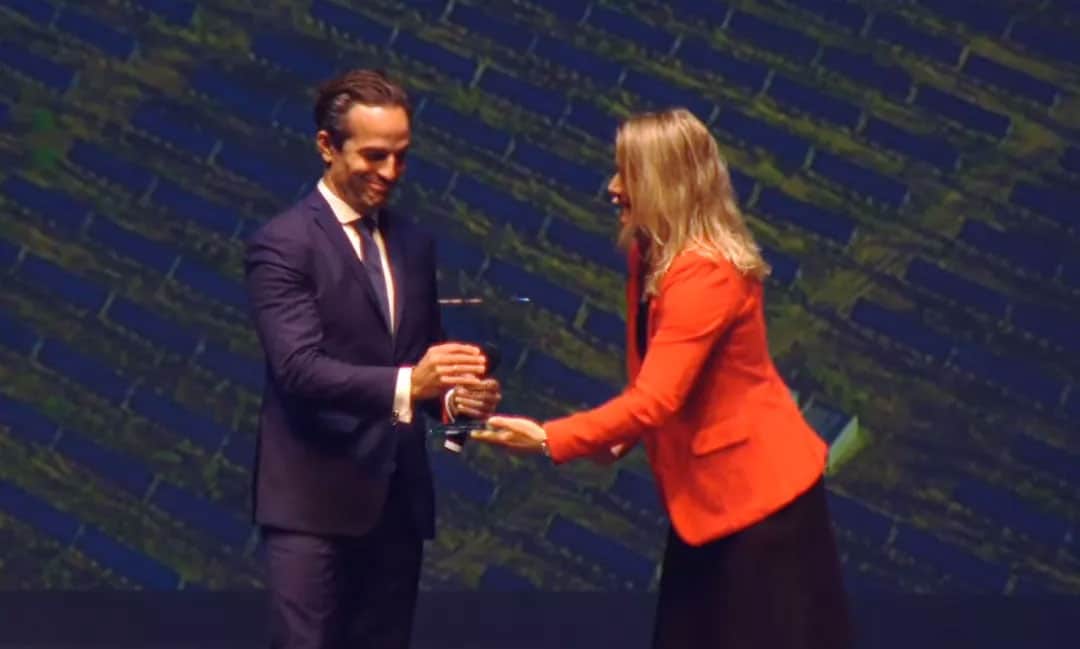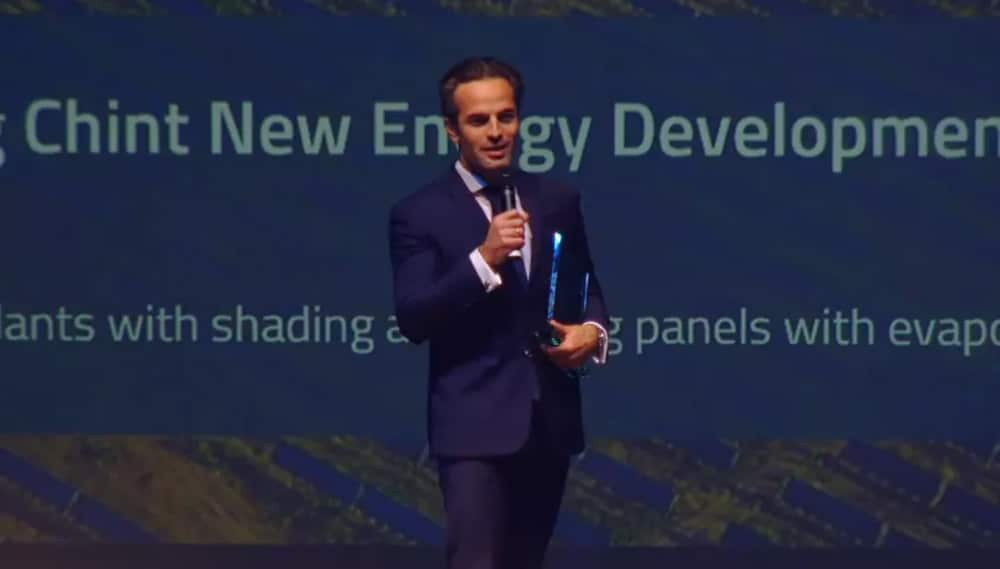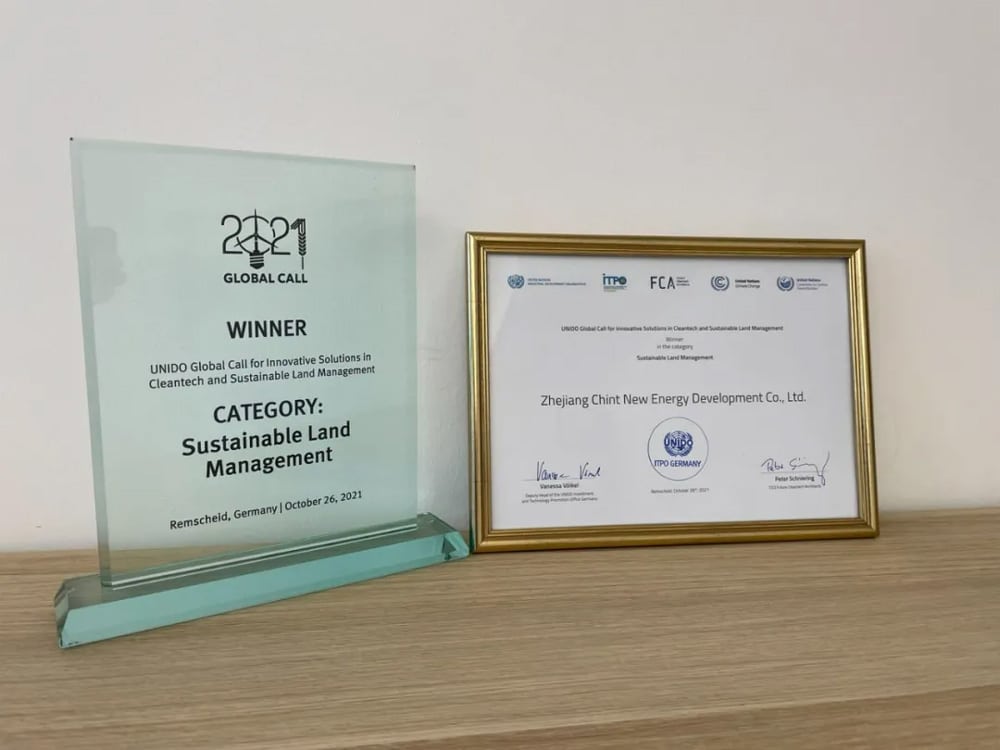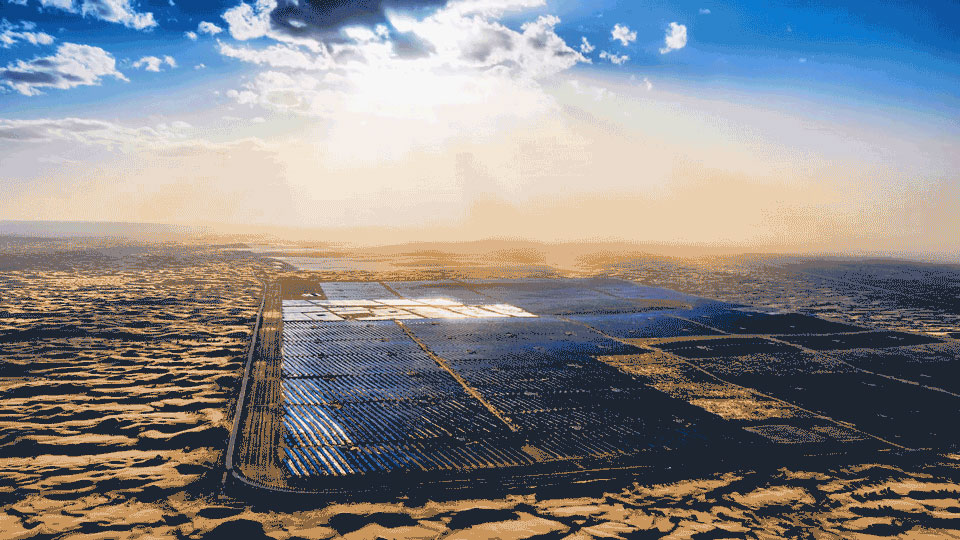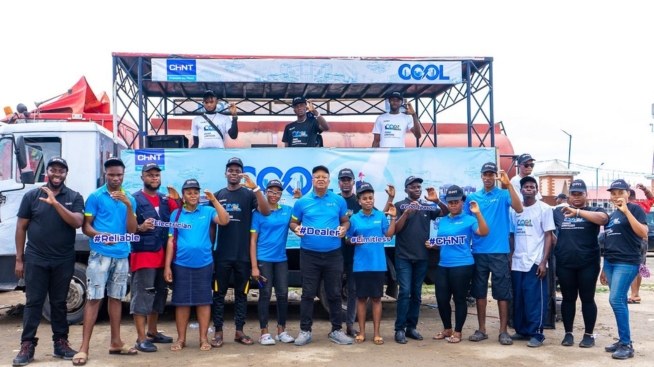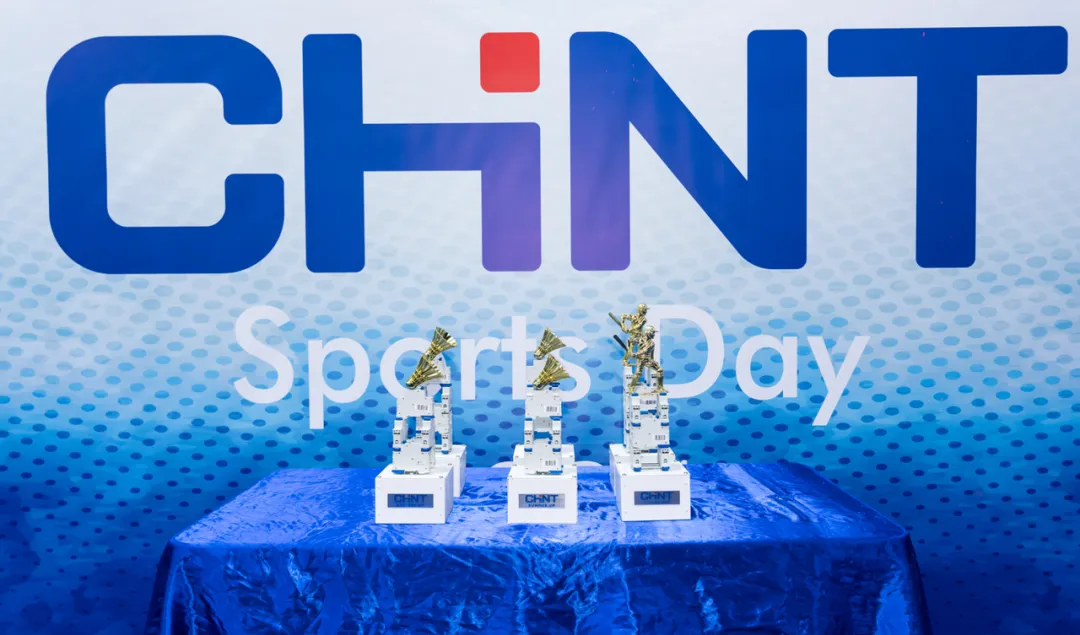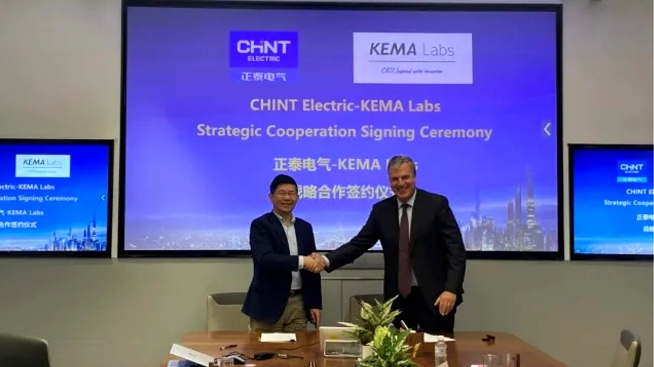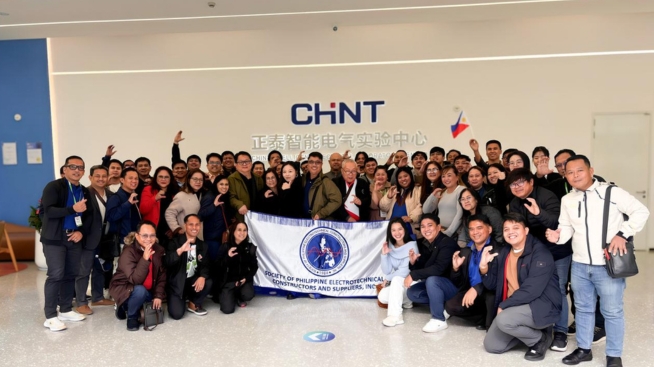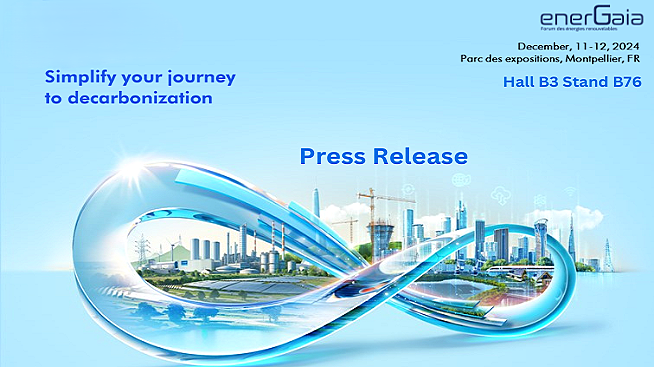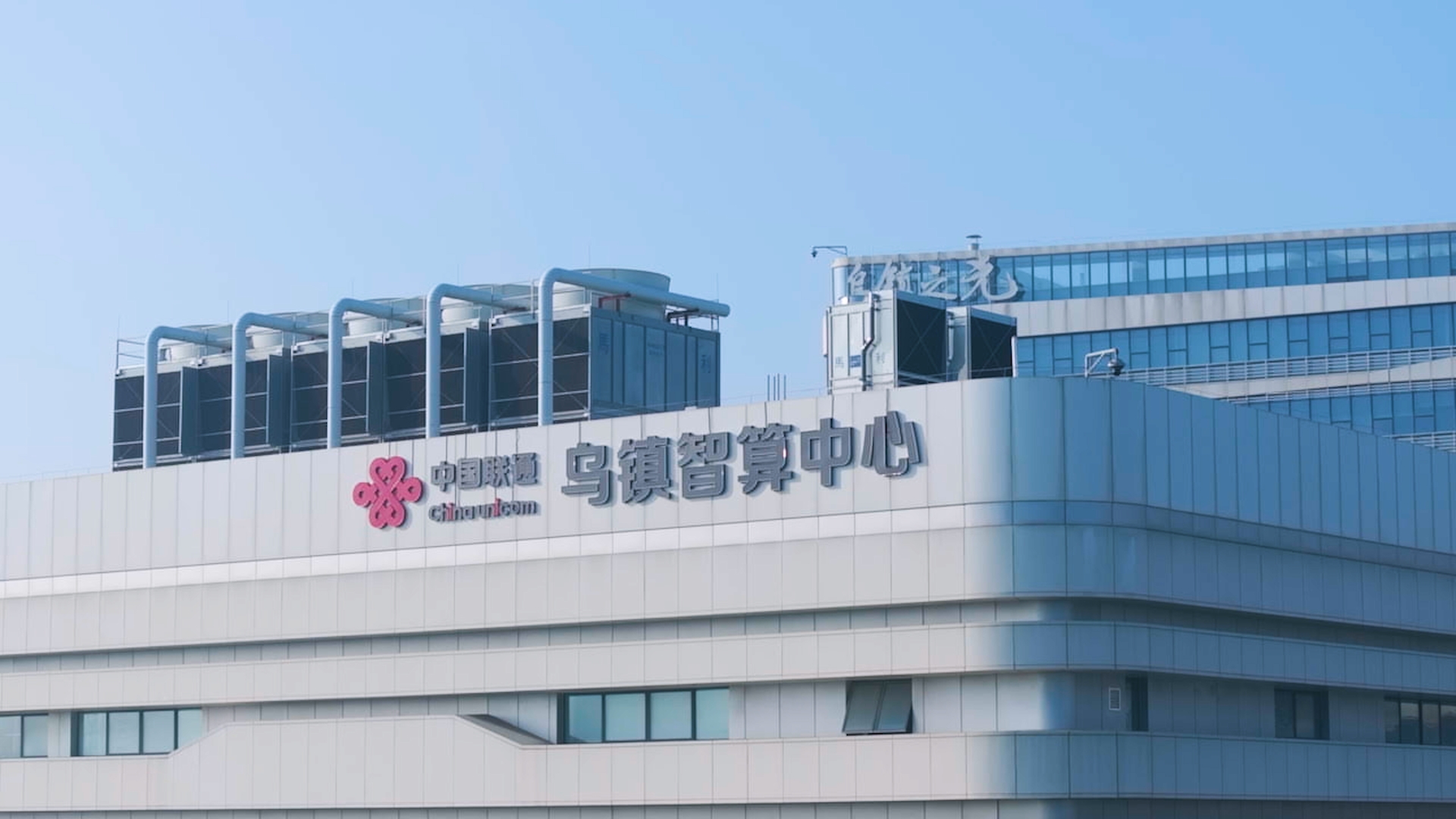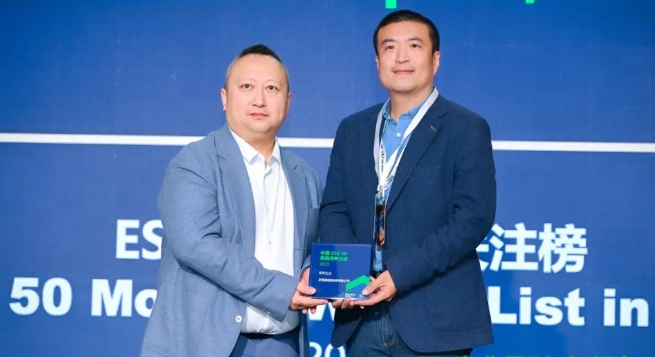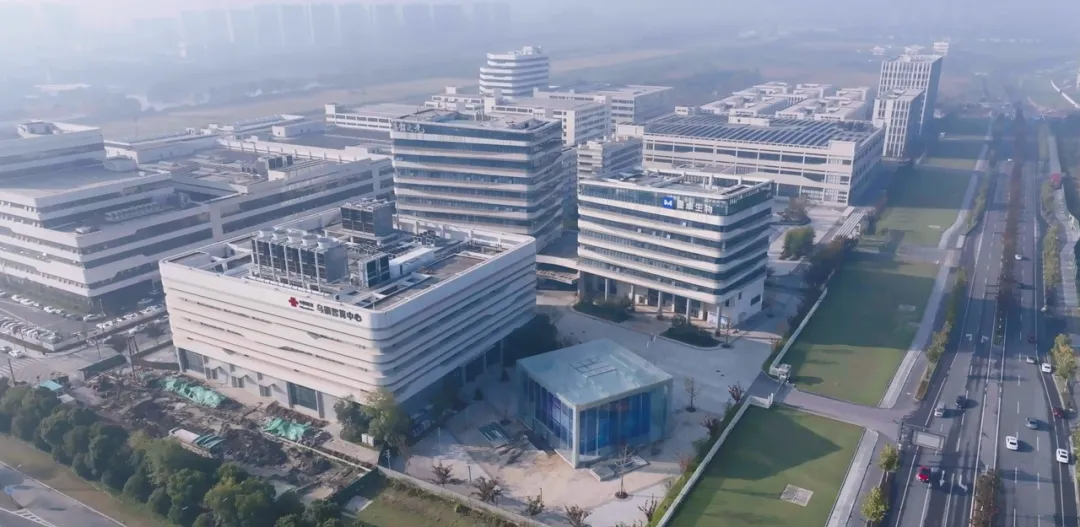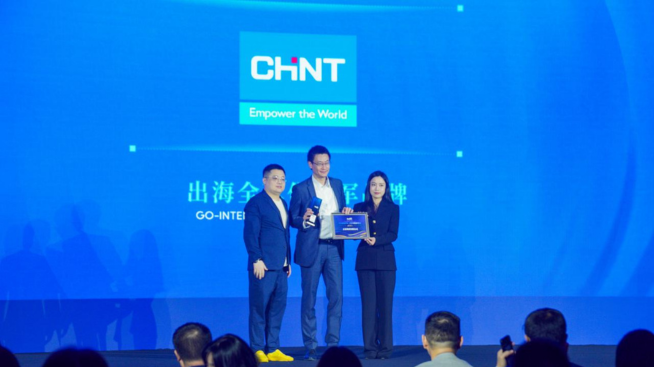On October 26th, CHINT New Energy Kubuqi 310MW Sand-Light Complementary Power Plant was selected for the “Sustainable Soil Governance” program of the United Nations Industrial Development Organization (UNIDO) Global Appeal for Innovative Solutions for Clean Technology and Sustainable Soil Governance (STAG).
The project integrates sand control, grass planting, cultivation, and power generation. It has produced significant soil improvement in the project area, which won the high appreciation of the jury.
The award event was jointly sponsored by the United Nations Industrial Development Organization(UNIDO), the United Nations Framework Convention on Climate Change (UNFCCC), the United Nations Convention to Combat Desertification (UNCCD), and the German think tank Future Clean Technology Architect (FCA).
Through a global search for innovative solutions, it aims to address the global challenges of climate change, the development of clean technologies, and advance sustainable soil management, driven by the carbon emissions peak and carbon neutrality goals. As soon as the selection was announced, it attracted the active participation of various companies from all over the world that have been deeply involved in these fields.
At the award ceremony, Mr. Oliver Schweininger, a representative of CHINT Solar Europe, accepted the award on behalf of the company. In his speech, he said: “That in order to ensure a smooth and rapid transition of global energy, the solar industry needs to take into account the needs of the local residents and make the most effective use of available land. The Sand-Light Complementary Model offered by CHINT Solar will further increase the acceptance of solar energy in the world”.
Blue Oasis in the Desert
CHINT Kubuqi 310MW Sand-Light Complementary Project
CHINT Kubuqi 310 MW Sand-Photovoltaic Complementary Power Station has an average annual power generation of about 550 million kWh and a sand control area of 16.7 square kilometers. Due to the remarkable effectiveness of photovoltaic sand control, it has become China’s first photovoltaic desert demonstration project.
It uses the five-in-one composite ecological solar energy model of “sand control” + “grass cultivation” + “farming” + “power generation” + “poverty alleviation” while keeping the photovoltaic power generation as the main objective.
The development of agriculture, husbandry, and ecological control has been demonstrated to achieve significant economic, social, and ecological benefits. In 2020, it was also endorsed by the United Nations Convention to Combat Desertification (UNCCD). This project was reported by UNIDO ITPO Shanghai.
The project can significantly enhance the soil improvement of cultivated land, land reclamation, and combat desertification through the use of new technologies and production methods. The CHINT Kubuqi sand control model has not only made the desert green but also enriched the local residents financially, leading to a new path of ecological improvement and transforming the originally barren land, to full of life.
UNIDO
United Nations Industrial Development Organization
The United Nations Industrial Development Organization (UNIDO) is a multilateral technical assistance organization of the United Nations General Assembly. It was established in 1966 and officially converted to a United Nations specialized agency in June 1985.
It is headquartered in Vienna, Austria. Its mission is to “help promote and accelerate the industrialization of developing countries and coordinate the activities of the United Nations in industrial development.” The purpose of this agency is to promote the economic development and industrialization process of the developing countries and countries with economies in transition, through technical assistance and industrial cooperation.
Its main activity is to help these countries to improve their economic competitiveness, the environment, and increase productive employment at the three levels of policy, institutions, and enterprises by providing a series of comprehensive services.




